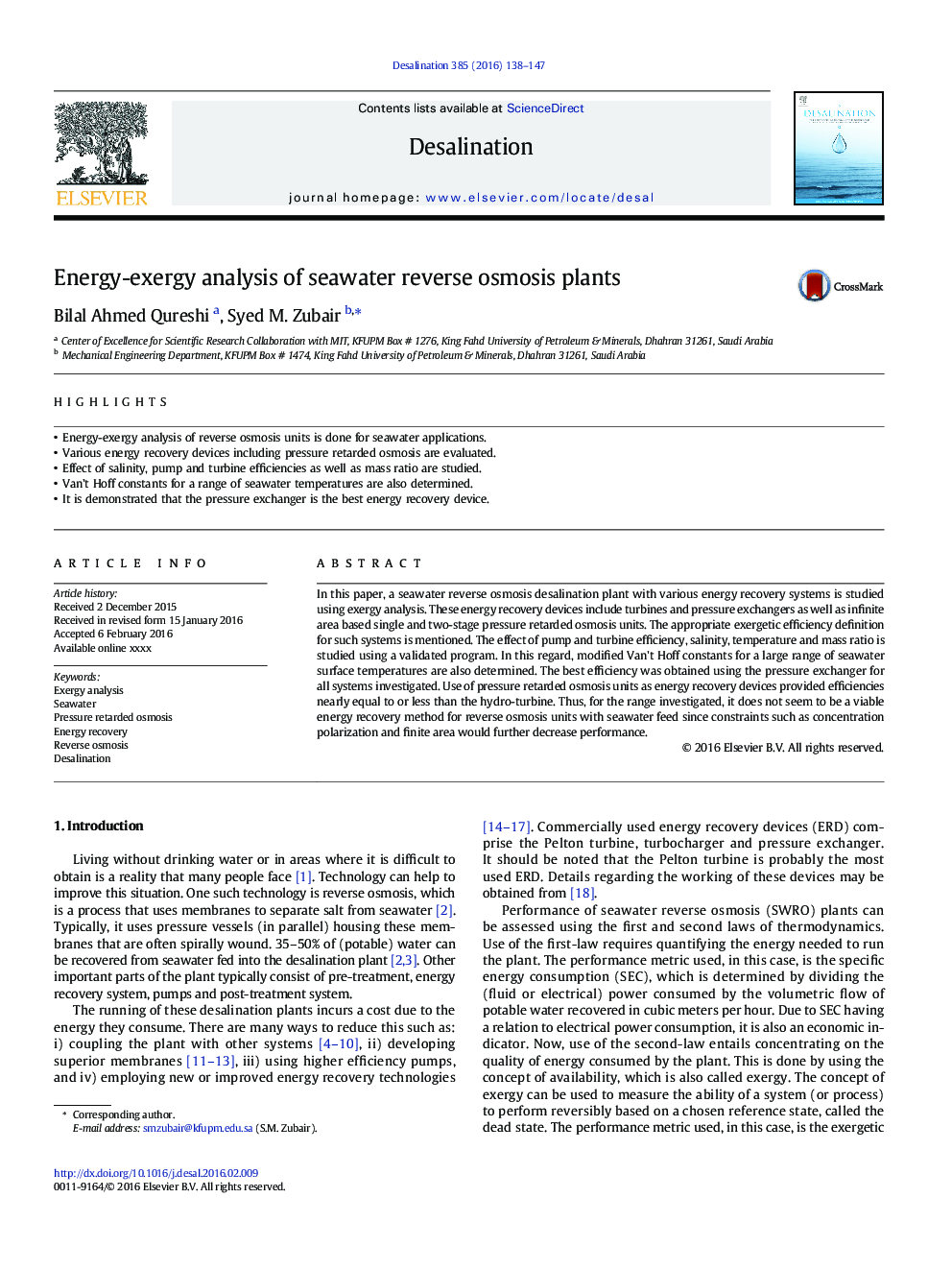| Article ID | Journal | Published Year | Pages | File Type |
|---|---|---|---|---|
| 622904 | Desalination | 2016 | 10 Pages |
Abstract
In this paper, a seawater reverse osmosis desalination plant with various energy recovery systems is studied using exergy analysis. These energy recovery devices include turbines and pressure exchangers as well as infinite area based single and two-stage pressure retarded osmosis units. The appropriate exergetic efficiency definition for such systems is mentioned. The effect of pump and turbine efficiency, salinity, temperature and mass ratio is studied using a validated program. In this regard, modified Van't Hoff constants for a large range of seawater surface temperatures are also determined. The best efficiency was obtained using the pressure exchanger for all systems investigated. Use of pressure retarded osmosis units as energy recovery devices provided efficiencies nearly equal to or less than the hydro-turbine. Thus, for the range investigated, it does not seem to be a viable energy recovery method for reverse osmosis units with seawater feed since constraints such as concentration polarization and finite area would further decrease performance.
Related Topics
Physical Sciences and Engineering
Chemical Engineering
Filtration and Separation
Authors
Bilal Ahmed Qureshi, Syed M. Zubair,
